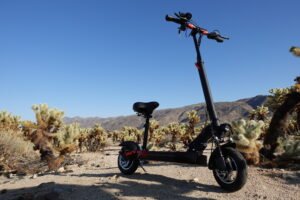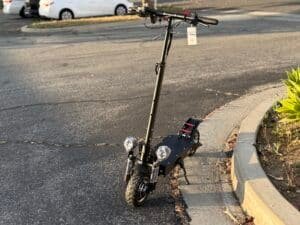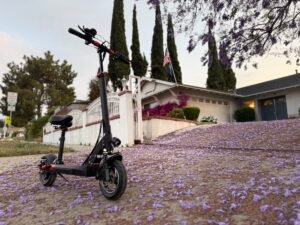Is riding an electric scooter good for your health?
Riding an electric scooter might look like a laid-back, hands-off experience—but your body and mind are actually doing a lot more than you think.
Yes, riding an electric scooter can be good for your health. While it's not the same as high-intensity cardio, it does engage your core, legs, and balance. It also sharpens your senses and coordination, offering both physical and mental benefits.

Riding a scooter makes you move in ways you don’t normally do. You need to stay balanced1, adjust your posture2, and stay alert3. The best part? You can get these benefits just by riding around your neighborhood or commuting to work.
Does riding an electric scooter count as exercise?
Electric scooters don’t feel like exercise, but that’s part of the magic. You don’t realize how much your body’s doing until you stop.
Yes, riding an electric scooter counts as a light form of exercise. It strengthens your core and lower body while improving your posture and reflexes. Most of all, it trains your balance, which is often overlooked in traditional workouts.
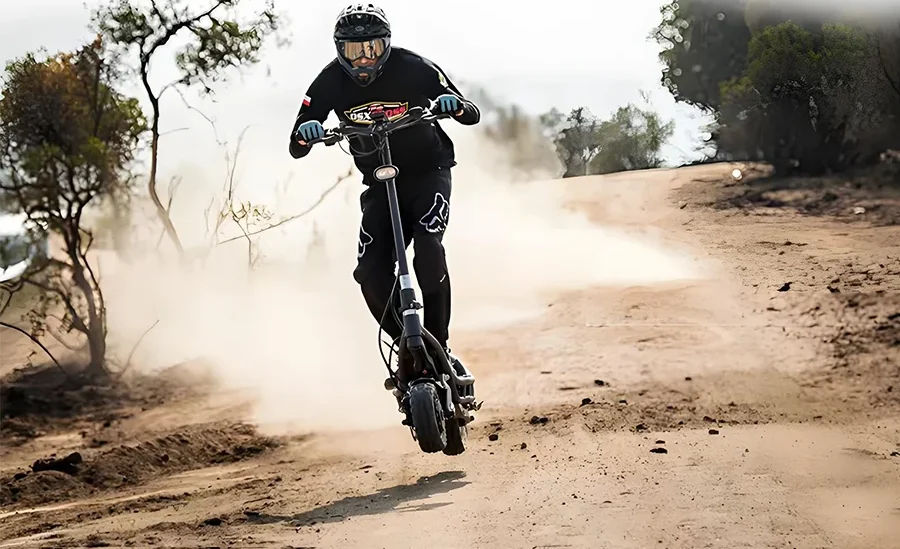
What kind of exercise is it?
Electric scooters don’t make you sweat like jogging, but they train your body in different ways:
| Area | What It Does |
|---|---|
| Core muscles | Stabilizes your body while riding |
| Legs | Keeps you standing upright for long periods |
| Arms & shoulders | Steers and absorbs vibration |
| Mind | Increases coordination and focus |
When you’re riding, your body shifts constantly to stay balanced. You bend your knees slightly. You brace your abs. Your eyes scan for bumps or corners. These small actions add up, especially if you ride often.
This kind of micro-movement is known to improve mobility and coordination, especially as we age. If you commute or cruise for fun daily, you’re giving your body a consistent workout, even if you don’t call it one.
What does riding a scooter do to your body?
It’s not just your legs working when you're on a scooter. Your whole body joins the ride.
Riding a scooter boosts your posture, tones muscles in your core and lower body, and keeps your joints moving. It also improves your balance, alertness, and overall coordination.
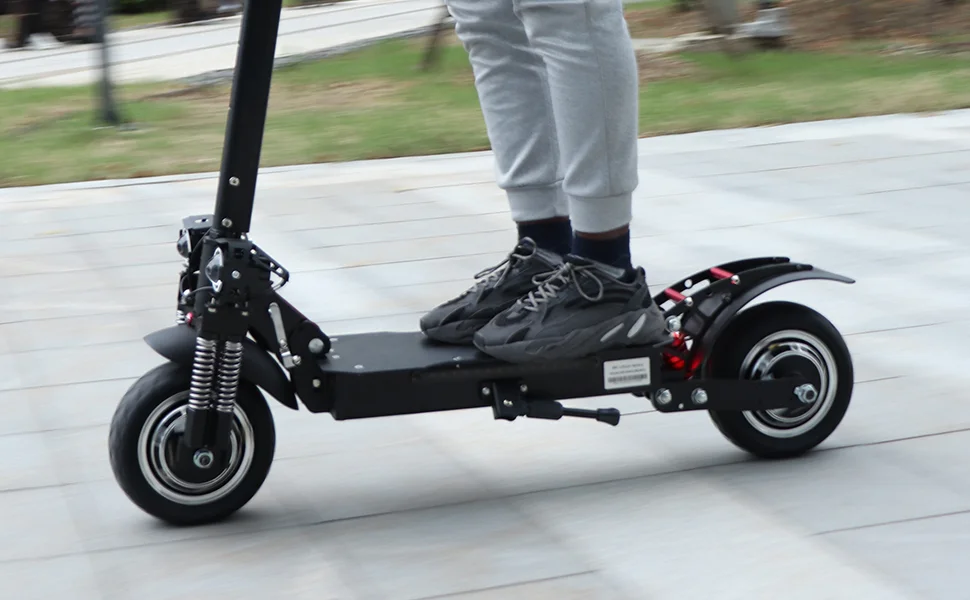
Why the whole body is involved
The action of riding may seem passive, but your body is constantly adjusting. Here’s how:
| Body Part | Movement |
|---|---|
| Waist | Keeps your center stable |
| Knees | Act as shock absorbers |
| Ankles | Help with small balance shifts |
| Arms | Control direction and handle pressure |
| Eyes | Constantly scanning the road ahead |
I usually ride for one to two hours during weekends. After each ride, I can feel my legs slightly sore, especially my calves and hamstrings. My back feels upright, like I’ve done a light yoga session. It’s not high-intensity, but it’s effective in its own way.
What muscles do scooters work out?
You might not feel the burn right away, but that doesn’t mean your muscles aren’t working.
Scooter riding targets your lower-body muscles4, especially the calves, hamstrings, glutes, and quads5. It also activates your core to help with balance, and your arms and shoulders for control.
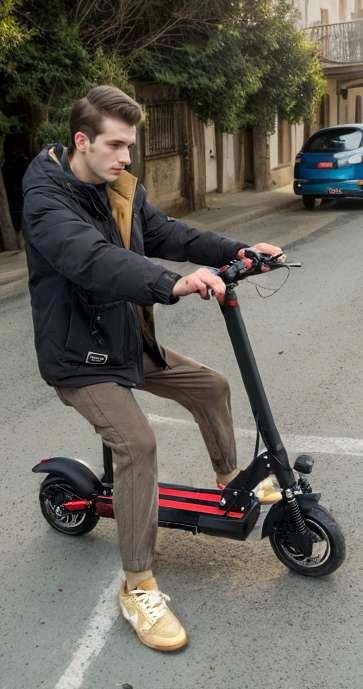
Muscle map from head to toe
Here's a breakdown of what gets engaged when you’re scootering:
| Muscle Group | How It's Used |
|---|---|
| Core (abs, obliques) | Keeps your torso upright and stable |
| Glutes | Engaged while standing and shifting weight |
| Quads | Support your stance on long rides |
| Hamstrings | Stabilize your legs during motion |
| Calves | Constant micro-adjustments while riding |
| Shoulders & arms | Help steer and absorb road vibrations |
It’s the kind of workout that feels easy, but works in the background. After regular rides, you'll notice better posture and stronger lower limbs, especially if you’re not doing much other exercise during the week.
How long does it take to exercise on a scooter?
Most people don’t think of scooters when they plan a workout, but the time spent riding still adds up.
You’ll start getting health benefits after riding a scooter for at least 30 minutes. For noticeable effects on muscle tone, balance, and coordination, try riding 1–2 hours a few times a week.

Quality over intensity
You don’t need to ride fast or far. What matters more is consistency and posture. During each ride, your core tightens, your legs support your weight, and your eyes and hands are always alert.
Here’s how different durations benefit your body:
| Duration | Effect |
|---|---|
| 10–15 min | Light stimulation, mood boost |
| 30 min | Full-body light activation, posture improvement |
| 1–2 hours | Deep muscle engagement, stamina and balance training |
| Regular weekly rides | Builds strength over time, similar to light aerobic training |
I ride about twice a week for about 1.5 hours each time. It’s not intense, but after months of riding, I’ve noticed my legs feel stronger, and my balance is much better. Even my posture while sitting has improved.
Conclusion
Riding an electric scooter may not replace the gym, but it’s definitely a low-key, full-body activity that helps your health, sharpens your focus, and strengthens your muscles over time.
Table of Contain
-
Exploring this link will provide insights into the importance of balance in riding and its overall health benefits. ↩
-
This resource will help you understand how proper posture can enhance your riding experience and prevent injuries. ↩
-
Discover why maintaining alertness is crucial for safety and enjoyment while riding a scooter. ↩
-
Exploring this resource will provide insights into the importance of lower-body workouts and their impact on overall fitness. ↩
-
This link will guide you to effective exercises that strengthen these key muscle groups, improving your overall fitness. ↩



